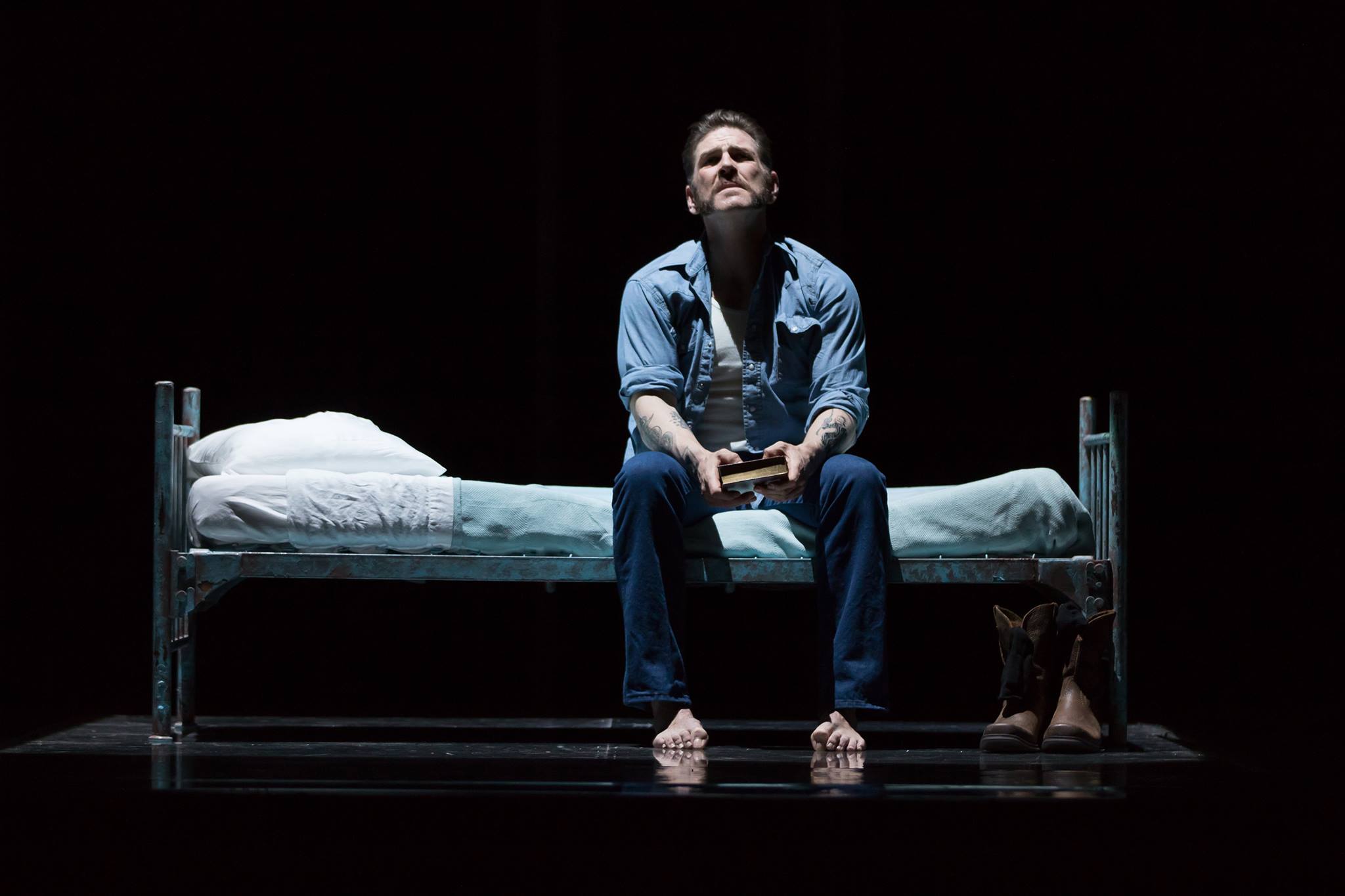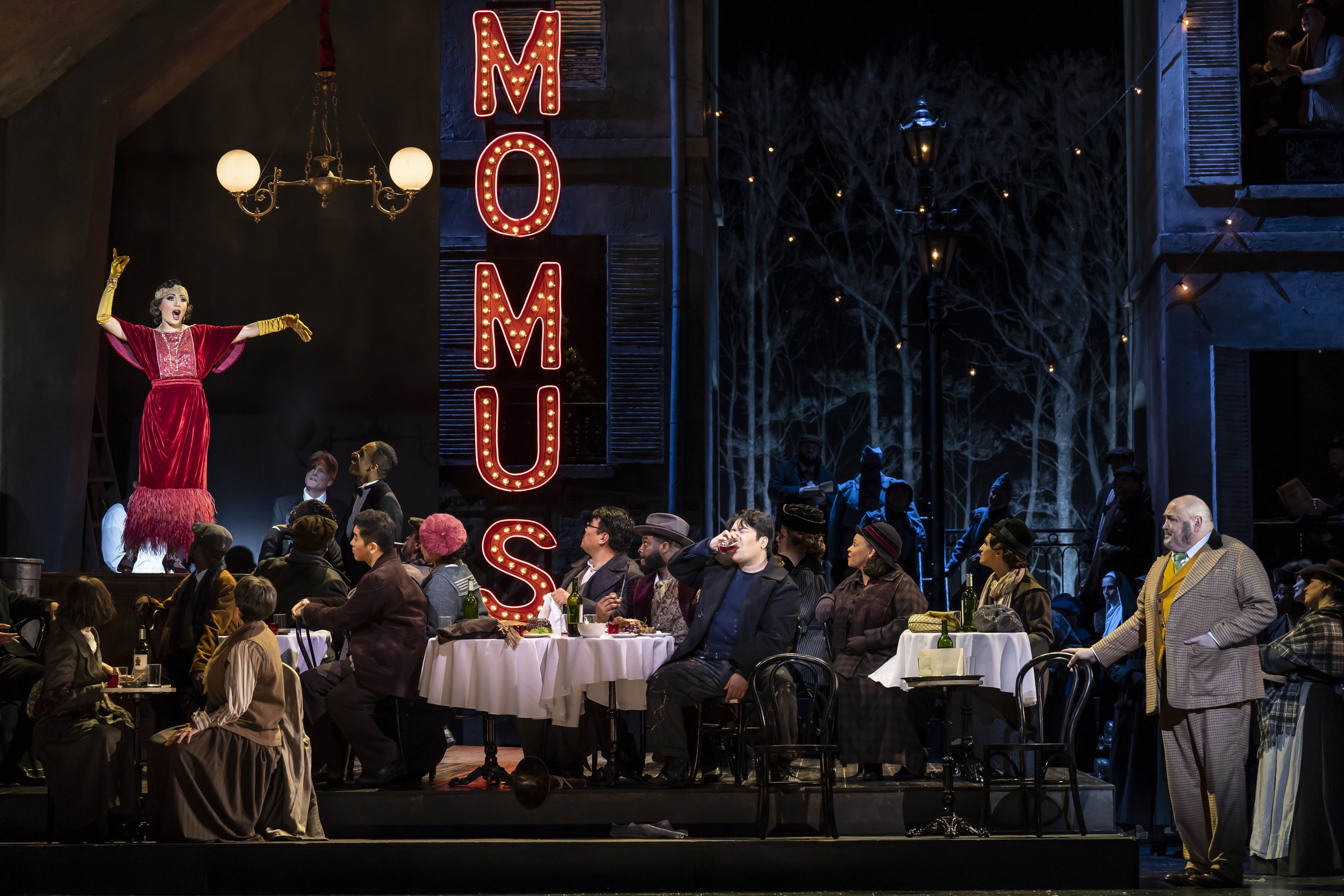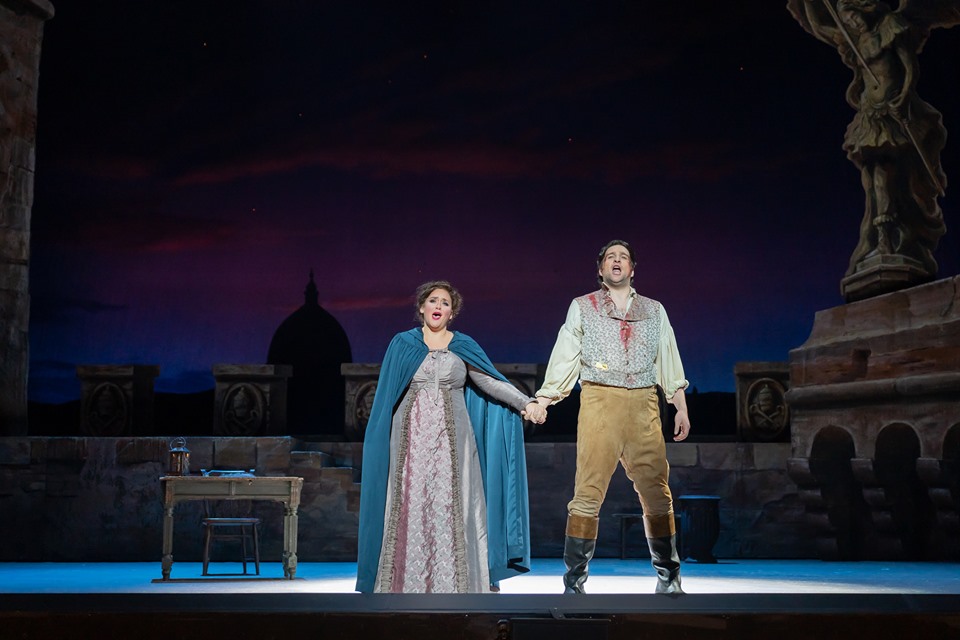The other Bohème

West Edge Opera resuscitates Leoncavallo's La Bohème
There are two versions of La Bohème, the one we all know and love by Puccini, and the other one by Ruggero Leoncavallo, which few people know about and fewer still have ever seen performed on a stage. Puccini’s version beat Leoncavallo’s to the stage by a year in 1896, but both use the same source material, Henri Murger’s 1851 novel Scenes de la Vie de Bohème. Puccini had his first real success with its predecessor, Manon Lescaut, but Bohème was a great artistic leap forward for him, and the rest, as they say, is history. On the other hand Leoncavallo peaked with his first operatic effort in 1892, the verismo classic Pagliacci — his only work that remains popular.
The Cafe Momus scene from an 1899 production of Leoncavallo’s La Bohème.
There’s no second-guessing the marvelousness of Puccini’s version — it’s one of the finest operas ever written, and arguably the greatest to ever come out of Italy (though the same could rightfully be said of a handful of Verdi’s works), but after hearing West Edge Opera present a scaled down version of Leoncavallo’s Bohème, I wonder what would have happened it he had beaten Puccini to the punch, or at least backed off from a direct challenge by choosing a different title. He might well have had a second hit, one that could have been greater than Pagliacci.
Both Bohèmes feature the same characters and settings, though Leoncavallo’s Boheme lacks the earworms of Puccini’s version, or anything approaching the gripping immediacy of his own “Vesti la giubba” from Pagliacci. But Leoncavallo’s version might have a more appealing structure, dividing the story into halves with two acts of comedy followed by two laden with drama and misery which dive deep into verismo territory. Leoncavallo placed Musette and Marcel’s relationship in the center of the story, shadowed by Rodolphe and Mimi’s, and from a dramatic standpoint it’s a better choice, or at least a less obviously romantic one which works in his favor; unlike Puccini, Leoncavallo seems uninterested in making the audience swoon and cry — he wants to inflict some pain. Some of the music and action in the second half makes violence seem imminent, a gripping aspect missing in Puccini’s version.
As part of its Opera Medium Rare concert series, West Edge made a compelling case for what it billed as “The Other Bohème” in the second of its “doppelgänger season” at Berkeley’s Freight & Salvage on Tuesday evening (the first was an even rarer version of The Barber of Sevilleby Giovanni Paisiello). Accompanied by what must have been an exhausting performance by the company’s Music Director Jonathan Khuner on piano, the fine cast of singers featured especially impressive turns by Buffy Baggott and Alex Boyer as Musette and Marcel. Both sound ready for a fully staged version (so let’s have it, Mr. Streshinsky). Anders Froehlich and Carrie Hennessey sang the roles of Rodolphe and Mimi, which Leoncavallo brings into clearer focus in the opera’s second half, giving both singers a chance to shine in solos and duets. Schaunard’s role is larger here, ably handled by baritone Michael Orlinsky, along with notable contributions from Michael Mendelsohn as Gaudenzio/Durand, Sally Mouzon as Phèmie, and Alexander Frank as a Bum. Ryan Bradford, Paul Cheak, and Michael Crozier rounded out the cast, along with a chorus of fifteen.
West Edge Opera, a presence on the Bay Area opera scene for over three decades, has really upped the ante in recent years and is currently producing some of the most interesting work in the field. Their three-opera season is short, but at the moment its diversity exceeds any other Bay Area opera company. This coming summer (July 30th – August 14th) their entire season will take place at Oakland’s abandoned train station (the scene of their greatest success so far, a stunning production of Berg’s Lulu), with staged productions of Thomas Adès’ Powder Her Face (featuring Emma McNairy as the Maid), Handel’s Agrippina, and Janáček’s Cunning Little Vixen. Tickets go on sale soon. Click here to get notifications or visit their website.
If you liked this, like A Beast on Facebook for more.






